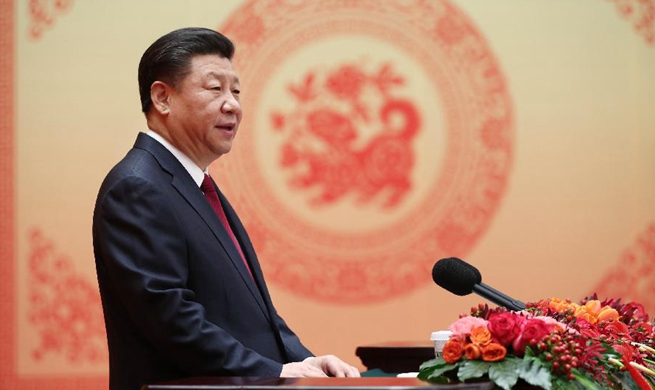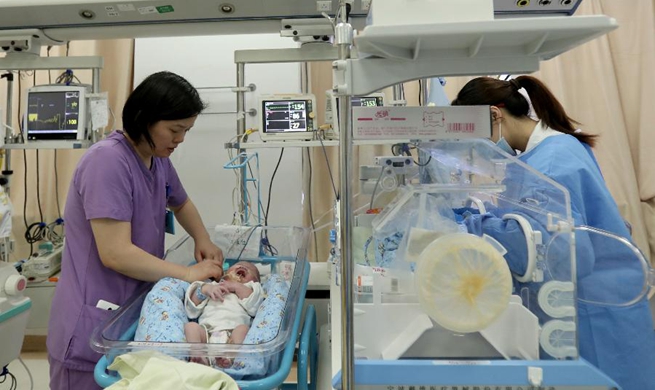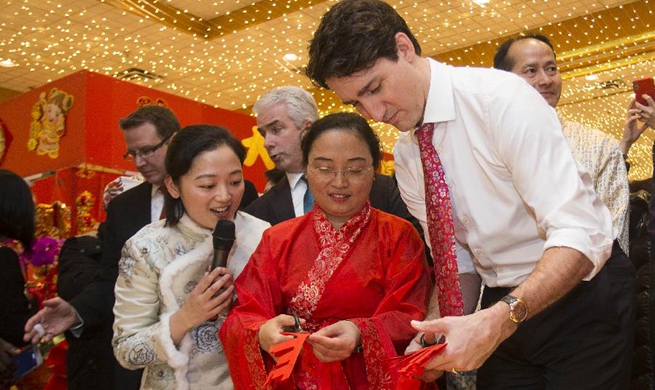BERLIN, Feb. 16 (Xinhua) -- Nine major global corporations have agreed to sign a joint cyber security declaration on the sidelines of the Munich Security Conference (MSC) on Friday.
In an initiative championed by German electronics giant Siemens, firms including the European aerospace company Airbus, German carmaker Daimler, U.S. software company IBM and German insurance company Allianz, vowed to adopt shared rules and standards with regards to cyber security.
The declaration highlights ten specific areas in which politicians and businesses are urged to do more to ensure the safety of an increasingly-digitalized world.
Amongst others, the document lists certifying critical infrastructure for the so-called "internet of things", enshrining cyber-security regulations in free trade agreements (FTAs) and ensuring that security- and privacy-protecting functions are pre-installed in products as their "default setting".
Speaking to press, Siemens chief executive officer (CEO) Joe Kaeser said that cyber-security was already a crucial element of modern security policy in general. It consequently made sense for private market actors to join forces in this area, as this would improve the "economic conditions" faced by firms seeking to defend themselves against related threats.
Kaeser noted that several other companies had already expressed interest in joining the initiative as well.
The declaration has also received support from public sector representatives and organizations, such as the MSC itself, Canadian foreign minister Chrystia Freeland, and the European Union's (EU) commissioner for the internal market, industry and entrepreneurship Elzbieta Bienkowska.
While Kaeser lamented that the recently-achieved "grand coalition" agreement between the Christian Democratic Union (CDU), Christian Social Union (CSU) and German Social Democrats (SPD) did not commit to creating an independent ministry for digital affairs, he expressed optimism that public awareness for the potential damage created by cyber-security breaches was nevertheless growing.
Addressing a specific German challenge, Kaeser further called on Berlin to improve the quality and coverage of mobile phone networks.
The EU Agency for Network and Information Security (ENISA) has recently estimated that cyber-security costs amounted to 560 billion euros in 2016 alone. The agency warned that risks would continue to increase as more and more machines were connected to the internet.

















